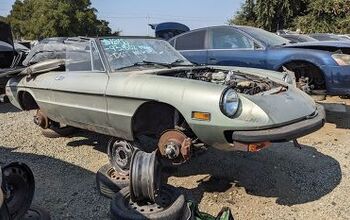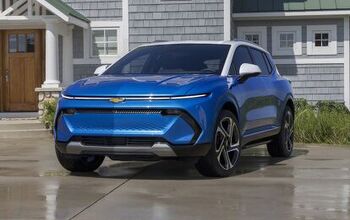Ur-Turn: Transparency In The Car Buying Process. What Is It Really?
This week’s Ur-Turn comes from David Ruggles, a noted industry figure, prolific TTAC commenter and author of the Autos and Economics blog.
In my 44 years in the auto industry there have been a couple of continuing themes I have observed. First, there is never ending change. Second, consumers are uncomfortable with the negotiating process required when buying a vehicle. These days vendors to auto dealers are trying to sell dealers on the concept that “transparency” is the key to success in selling cars.
They demonize “traditional” dealers to sell their wares to those dealers who want to set themselves apart in the transparency war, as if the winners will take the lion’s share of the business. Scott Painter and TrueCar is a prime example. In our industry, there is a discussion taking place about what “transparency” actually is. I contend that true and absolute transparency has a precise definition, brought to us from the world of economics.
True market transparency is when buyers and sellers have the same information and the equal ability to interpret that information. This is called “symmetrical information. This leads to turning the product into a commodity which leads to an “efficient market.” “Efficient markets” lead to “disintermediation,” or the elimination of the middle man.
Yes. I know there are many consumers who think that would be a wonderful thing, as if buying a vehicle direct from the manufacturer could actually work on any kind of scale.
But these vendors have their own definition of transparency, which I find to be highly deceptive. I believe TrueCar and the others are trying to create the “perception of transparency” or “relative transparency,” NOT true transparency. In fact, it’s just another marketing strategy to make money on a car deal, perhaps a good one. But it isn’t “transparent.” It’s also a strategy to get dealers to participate in their own demise. We saw how that ultimately worked out with TrueCar. Dealers woke up and pushed back.
To be clear, I have no problem with dealers making money on car deals. And auto dealers should abide by both the spirit and letter of the law on “legal transparency.” But there is no other retail business I can think of where consumers feel entitled to “symmetrical information.” They couldn’t interpret it the information anyway, but that’s another discussion.
In my world, true transparency is when a consumer asks the F&I manager, “What is your cost on that Service Contract,” the F&I manager answers truthfully. If the consumer asks, “What rate markup are you charging me,” the F&I manager answers truthfully. If the consumer asks the dealer, “What is your net cost on the vehicle you are selling me,” the dealership answers truthfully. A dealer being evasive when asked a direct question like that is justified, but it just isn’t “transparent.” Consumers have the right to ask these questions. Sellers have the right to say, “It’s none of your business.” Hopefully, this is done artfully when necessary.
I think TTAC has a relatively broad cross section of consumers as readers and contributors. My question isn’t about how one thinks things should be. MY question is, “What is the true definition of “transparency.” Mine or Scott Painter’s new definition?
More by Ur-Turn
Latest Car Reviews
Read moreLatest Product Reviews
Read moreRecent Comments
- MaintenanceCosts Poorly packaged, oddly proportioned small CUV with an unrefined hybrid powertrain and a luxury-market price? Who wouldn't want it?
- MaintenanceCosts Who knows whether it rides or handles acceptably or whether it chews up a set of tires in 5000 miles, but we definitely know it has a "mature stance."Sounds like JUST the kind of previous owner you'd want…
- 28-Cars-Later Nissan will be very fortunate to not be in the Japanese equivalent of Chapter 11 reorganization over the next 36 months, "getting rolling" is a luxury (also, I see what you did there).
- MaintenanceCosts RAM! RAM! RAM! ...... the child in the crosswalk that you can't see over the hood of this factory-lifted beast.
- 3-On-The-Tree Yes all the Older Land Cruiser’s and samurai’s have gone up here as well. I’ve taken both vehicle ps on some pretty rough roads exploring old mine shafts etc. I bought mine right before I deployed back in 08 and got it for $4000 and also bought another that is non running for parts, got a complete engine, drive train. The mice love it unfortunately.


































Comments
Join the conversation
So would you say that the rest of your claims are more honest, less honest, or about the same as trying to pretend that customers actually want dealers to price fix?
> Heck, you can just make stuff up and there’s no accountability. Never thought I'd hear that from a car sales industry rep. What good is knowledge when you can't tell the truth?